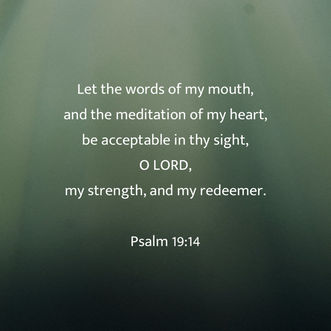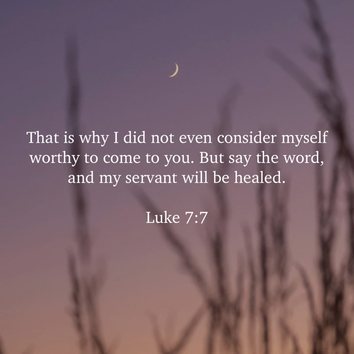|
Good morning! We're glad you're joining us today. We are meeting in person again, and we would love for you to join us when you're comfortable. We meet in the Sunday School room at 10:00 am. Each Sunday, we share our joys and concerns together. Take some time to consider your past week, and what joys and concerns you have. If there are any you would like to share, you can create a comment on the lesson. When you are ready, use the prayer below (source) to get started: O God of truth, prepare our minds To hear and heed your holy word; Fill every heart that longs for you With your mysterious presence, Lord. Almighty Father, with your Son And blessed Spirit, hear our prayer: Teach us to love eternal truth And seek its freedom everywhere. Amen Lesson Context The book of 2 Corinthians was a letter written by Paul to the church at Corinth. This letter was written in AD 57, shortly before his death somewhere between AD 62-64. Paul says at the beginning of the letter that he and Timothy had such troubles while in Asia that they, "despaired of life itself," (2 Corinthians 1:8). While he doesn't go into detail, the expectation of the potential end of his life is the background for almost everything Paul writes in the first few chapters of 2 Corinthians. But then he emerges from this contemplation with a triumphant note, proclaiming in 2 Corinthians 4:8-9: "We are hard pressed on every side, but not crushed; perplexed, but not in despair; persecuted, but not abandoned; struck down, but not destroyed." Some of Paul's anguish in this letter may have been caused by false teachers who had come to Corinth to undermine his teachings and authority. Paul's opponents were not above resorting to intimidation, including death threats (Acts 18:12-17). Paul did not fear dying because he knew that Jesus had defeated death. However, he knew about many theories of what happened to people after death. The Greeks generally believed in an underworld place, the realm of the dead ruled over by the god Hades. Some Jews and Greeks believed there was no existence after death. The part of the Sadducees was known for teaching there was no resurrection (Matthew 22:23), although most Jews believed in a future resurrection of the dead. Lesson At the time of writing, Paul was facing the prospect of his own death. In the first verse of our lesson, he makes a point: whether in the short-term on the long-term, Paul knew his life was temporary -- and that earthly life was relatively less important than eternal life. Therefore, he had found great peace, even in dangerous and discouraging circumstances. Inwardly, his heart and spirit were growing stronger as a result of his relationship with the Lord. No one is exempt from worries caused by our mortality and the eventual death of those we love. But when compared to the eternity that makes up your future, these tribulations are momentary. They result in, "eternal glory that far outweighs them all." Our book notes that this is actually a play on words. Paul speaks both Hebrew and Greek. In Hebrew, the word for heavy (as in "weight") is the same as the word for honor (as in "glory"). Verse 18 is a familiar verse, and is often paraphrased. "So we fix our eyes not on what is seen, but on what is unseen, since what is seen is temporary, but what is unseen is eternal." The things that we can see last for a short time. They are temporary. The things we cannot see have much greater importance because they are eternal. To see the unseen, the important and eternal, we must have eyes of faith, trusting the testimony God has provided. Chapter 5 starts with a metaphor. He compares our bodily existence to a tent. Thinking of the Old Testament, the tabernacle, or tent of meeting, was a movable tent that was eventually replaced by the temple. The metaphor emphasizes the impermanent nature of our bodies. Paul then switches for a moment to another metaphor, one about clothing. Essentially, once we have done things like:
Then, Paul goes back to the tent. While we are alive, we have all kinds of burdens. These burdens direct our attention to the "right now," and not what is "to be." Our book notes that Paul, as a Pharisee, would never expect a permanent, eternal existence as some sort of free-floating spirit. He expects bodily resurrection. He expects that the new body would be swallowed up by life. Paul continues by saying that resurrection is a gift from God. Our book says that we were given the presence of the Holy Spirit in our hearts at baptism assures us that this will be the case. The last portion of our passage talks about our walk of faith. Paul argues that as long as we are in our current physical bodies, we cannot experience the closest presence of God. This is the direct result of the sins of Adam and Eve in the garden (Genesis 3:23). God's holy nature does not tolerate sin in his presence (1 Peter 1:15-16). As the Lord told Moses, "You cannot see my face, for no one may see me and live," (Exodus 33:20). Places where humans apparently see God directly are what are called theophanies -- visible manifestations of God, but not God in the fullness of his being. But when Jesus returns, "we shall be like him, for we shall se him as he is," (1 John 3:2). As Paul talked about earlier, as Christians, we have to live by faith, not by what we can see. We must have faith that when we die, we will be in the full presence of God. Because of this, we strive to please Christ to express gratitude as we show that way to others. We are not working for salvation. Our lives will be evaluated at the end. But we do not need to fear this judgement because we are already treated as not guilty in the eyes of God. The penalty for sin was already paid on the cross. Questions to Consider What change(s) would you have to make to your daily routine in order to make inner renewal a priority? What concept in today's lesson is most difficult for you to see "faith walk" value in? Conclusion Paul's world was not a safe place. Cities, villages, and roadways harbored many dangers. In the case of assault or robbery, justice in court was often unavailable or corrupt. People needed to be every wary and alert for danger. The best choice seemed to be to live just day by day in a self-protecting manner. Our world also seems scary. Between violence, poverty, deadly storms, and disease, it is easy to despair. For many, life lurches from one crisis to another. To look beyond one's present sufferings seems impossible. But that is what Paul calls us to do. We are not to fear death. We already enjoy the peace and comfort of the Holy Spirit. Rather than succumbing to despair, Paul challenges us to walk by faith, not by sight. Yes, we must endure and manage life's crises as they come. But we do so knowing that God is in control and our future is sure. Take a minute to evaluate. Do you walk primarily by faith or by sight? Prayer Father, it is tempting to respond to life's challenges using only our own resources. May we instead have faith to trust you, to live us you would have us live. We pray in the name of the one who conquered death, Jesus Christ. Amen. Benediction Today's benediction is from the Revised Standard Version. Next week, we will be starting a new quarter called Celebrating God. The lesson will be on Exodus 15:11-21. If you like completing the daily readings, you can find them all listed in the file below.
0 Comments
Leave a Reply. |
AuthorWe are a small, rural Presbyterian church in southwestern Pennsylvania. Archives
July 2024
Categories
All
|
||||||



 RSS Feed
RSS Feed